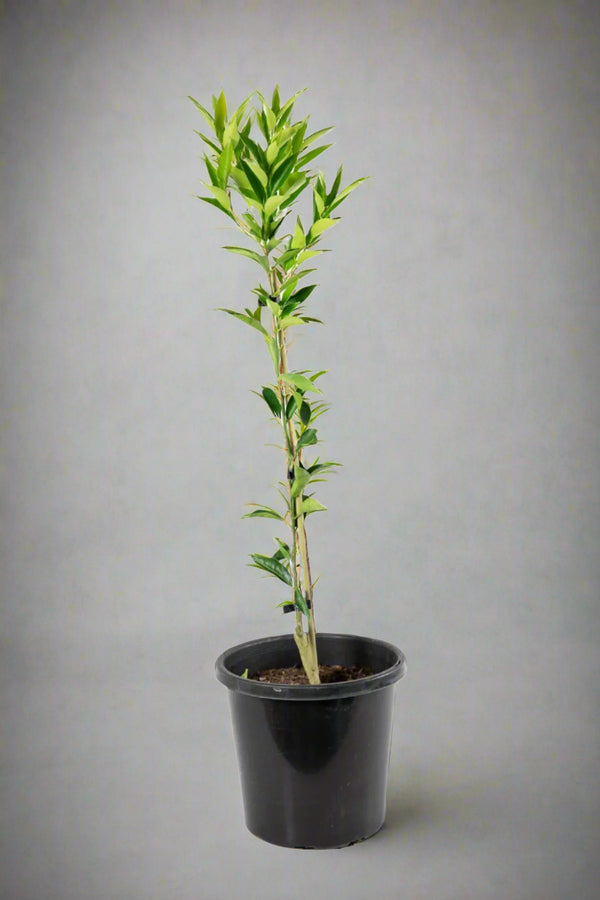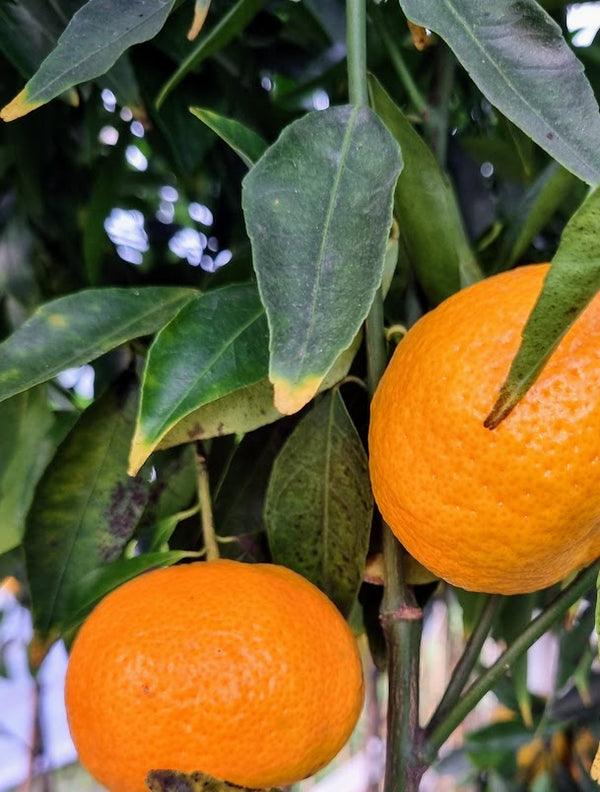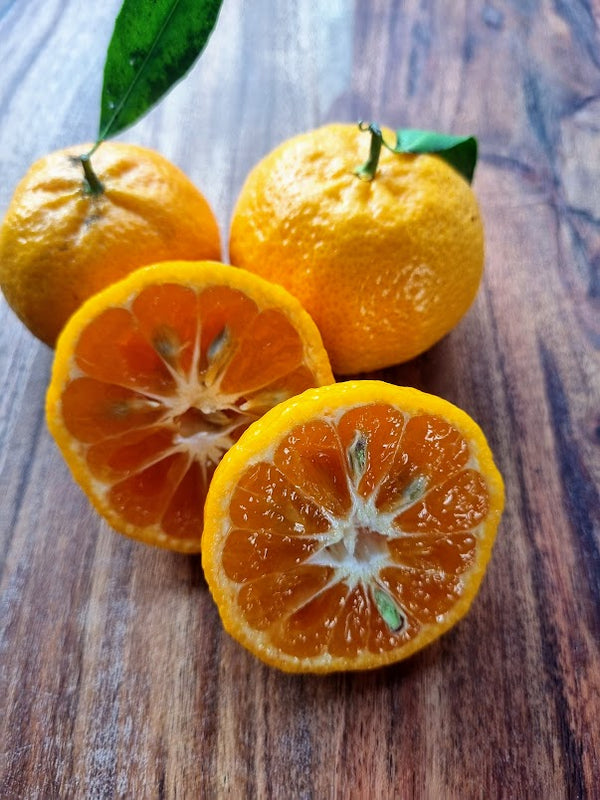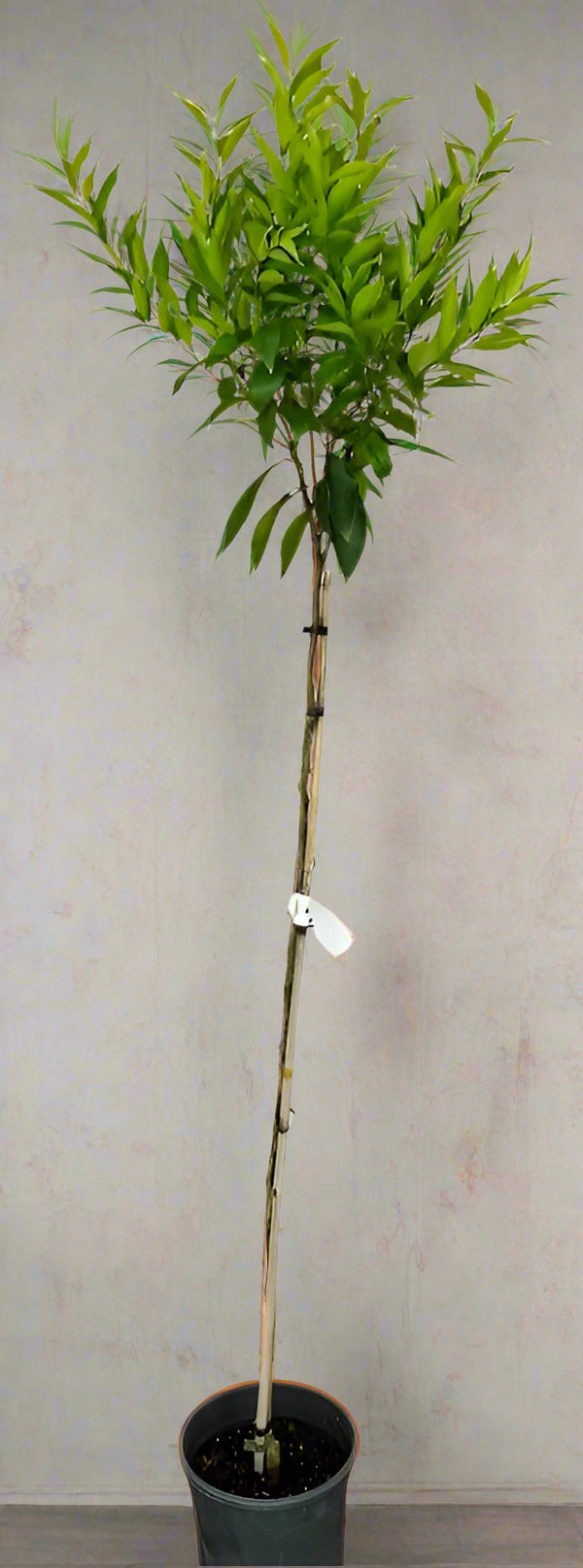
Willowleaf Mandarin Tree – Small, Sweet, and Attractive
Tax included
Shipping calculated at checkout
Please note: OurEstablished Range, Medium Standard Range (14L pot), andTall Standard Range trees are available for pickup only, as their size exceeds standard courier limits.
Don’t be fooled by their size—Willowleaf mandarins may only reach 2–3cm in diameter, but they pack a bold, fragrant punch of sweetness with a hint of tangy depth. Globally celebrated and commercially important, this variety is known for its thin, orange-yellow skin that blushes red when ripe, and its low seed count makes it a perfect pick-me-up snack.
Their aroma is just as memorable as their flavour—rich, citrusy, and absolutely irresistible straight off the branch.
Willowleaf trees grow with a little extra character: more thorns than most mandarins, but the fruit makes every scratch worthwhile. Thanks to their compact shape, they do well in containers on patios and balconies, making harvest time all the easier.
They’re also more tolerant of chilly weather than many citrus varieties, able to withstand light frosts down to –2°C once established—great news for home gardeners across New Zealand.
|
Names |
Willowleaf, Mediterranean Mandarin, Citrus deliciosa/p> |
|
Origin |
Italy |
|
Mature Size |
Semi-dwarf, typically reaching 3-4 meters in height. |
|
Foliage |
Narrow, elongated leaves resemble willow branches. Lighter green colour. |
|
Soil |
Well-draining soil rich in organic matter is ideal. Regular watering, especially during dry periods. |
|
Position |
Full sun is crucial for optimal fruit production and flavour development. While hardy, protect trees from heavy frosts and strong winds. |
|
Flavour |
Richer and deeper than regular mandarins, with a strong aroma and a delicious balance of sweetness and tang. Some describe it as having a hint of raspberry or honey. |
|
Fruiting |
Late winter to early summer. Fruit can stay on the tree for several weeks, allowing for extended harvest. |
|
Fruit Uses |
It is lovely eaten raw. The rind, flowers and leaves all contain essential oils which can be used for a variety of things including flavouring food and drinks. |






